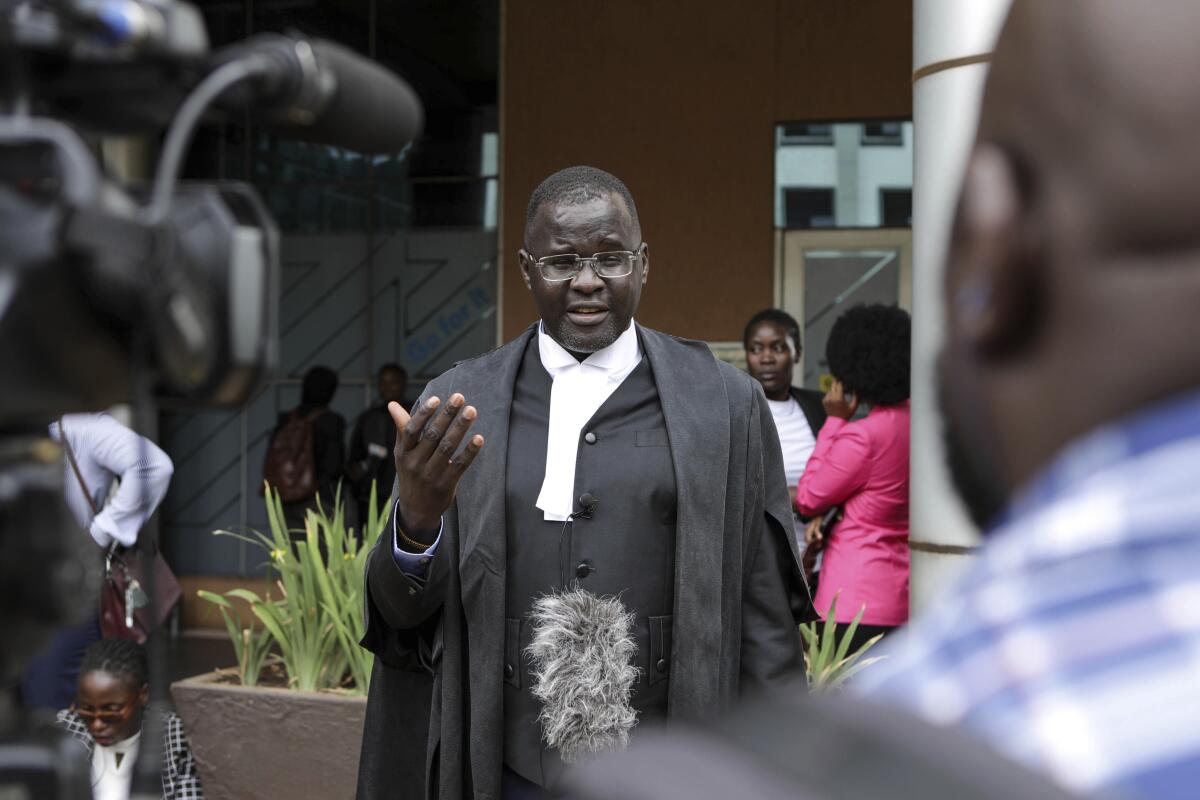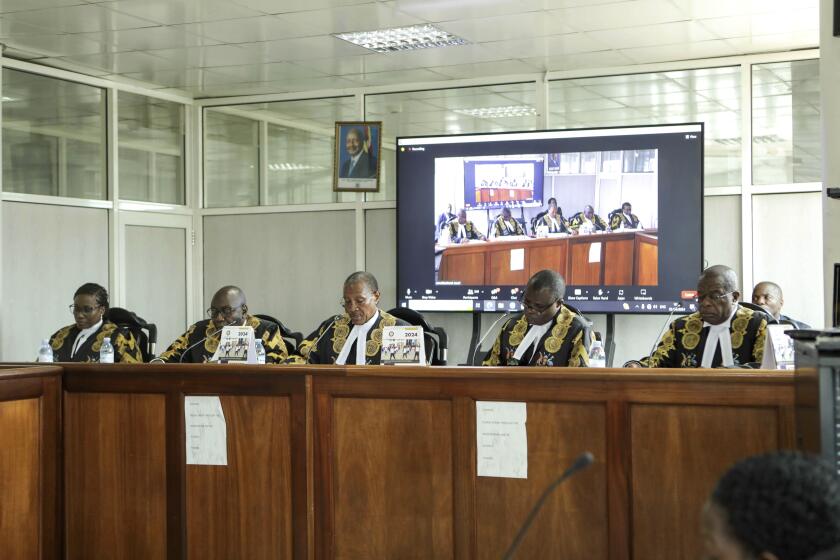Gay rights activists call for more international pressure on Uganda over anti-gay law

- Share via
KAMPALA, Uganda — Ugandan gay rights activists have asked the international community to mount more pressure on the government of Uganda to repeal an anti-gay law that the country’s Constitutional Court refused to nullify this week.
Activist Frank Mugisha said this week’s ruling was “wrong and deplorable.”
“This ruling should result in further restrictions to donor funding for Uganda — no donor should be funding anti-LGBTQ+ hate and human rights violations,” said Mugisha.
The court upheld a law that allows the death penalty for “aggravated homosexuality,” and up to 14 years in prison for a suspect convicted of “attempted aggravated homosexuality.” The offense of “attempted homosexuality” is punishable by up to 10 years.
President Yoweri Museveni signed the Anti-Homosexuality Act into law in May last year. It’s supported by many in the East African country but widely condemned by rights groups and others abroad.
Uganda’s constitutional court has upheld an anti-gay law that in some cases allows the death penalty for ‘aggravated homosexuality.’
The court ordered that members of the LGBTQ+ community should not be discriminated against when seeking medicine, but U.S. Secretary of State Antony Blinken on Tuesday dismissed that concession as a “small and insufficient step towards safeguarding human rights.”
“The remaining provisions of the [Anti-Homosexuality Act] pose grave threats to the Ugandan people, especially LGBTQI+ Ugandans and their allies, undermine public health, clamp down on civic space, damage Uganda’s international reputation and harm efforts to increase foreign investment,” he said.
A Ugandan human rights advocate who was a petitioner in the case, Nicholas Opiyo, expressed his disappointment.
“While we respect the court, we vehemently disagree with its findings and the basis on which it was reached. We approached the court expecting it to apply the law in defense of human rights and not rely on public sentiments and vague cultural values arguments,” said Opiyo.
Homosexuality was already illegal in Uganda under a colonial-era law criminalizing sexual activity “against the order of nature.” The punishment for that offense is life imprisonment.
Kasasira writes for the Associated Press.
More to Read
Sign up for Essential California
The most important California stories and recommendations in your inbox every morning.
You may occasionally receive promotional content from the Los Angeles Times.














